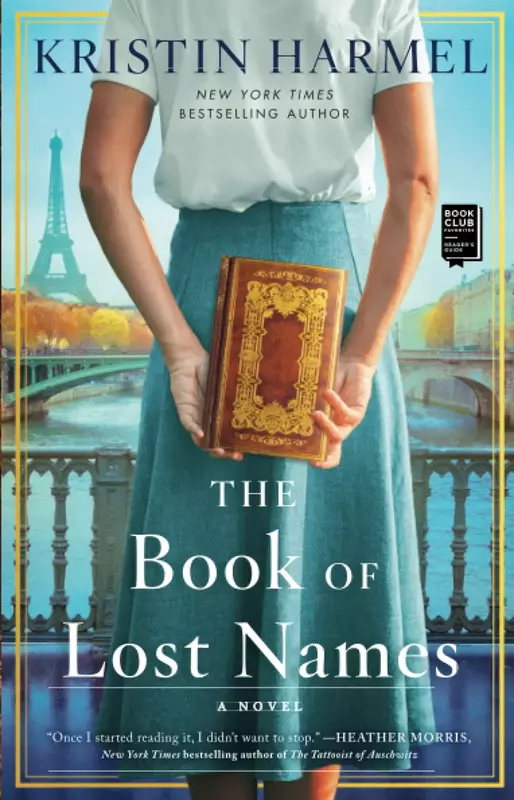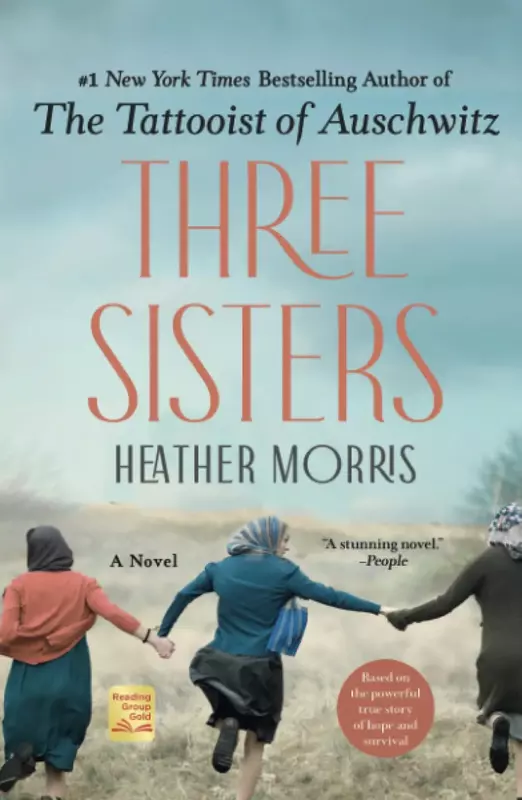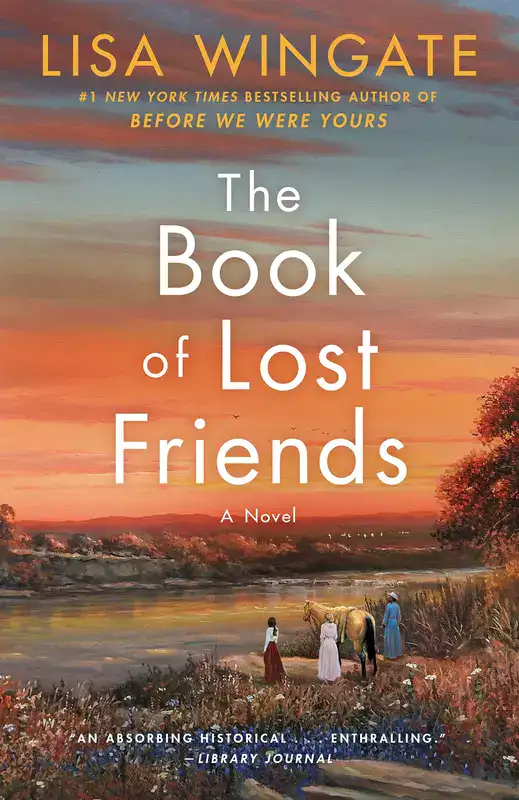This post may contain affiliate links. Read more here.
Book club discussion questions for The Yellow Bird Sings by Jennifer Rosner delve into the poignant themes of motherhood, sacrifice, and resilience during the Holocaust.
This haunting and lyrical novel follows the journey of Roza and Shira, a mother and daughter hiding in a barn in Poland during World War II. As Roza risks everything to protect her child, they must navigate the harsh realities of war, loss, and the power of music to find solace and hope.
Through vivid prose and emotional depth, The Yellow Bird Sings invites readers to reflect on the strength of the human spirit and the enduring bond between a mother and her child, even in the face of unimaginable adversity.
This book is sure to spark deep emotions and ignite thought-provoking discussions on the strength of the human spirit, the enduring bond between parent and child, and the profound impact of music.
Get ready for a captivating and heartrending conversation that will stay with you long after we turn the final page. Let’s embark on this literary adventure together and uncover the powerful themes that lie within The Yellow Bird Sings.✨
The Synopsis
In Poland, as World War II rages, a mother hides with her young daughter, a musical prodigy whose slightest sound may cost them their lives.
As Nazi soldiers round up the Jews in their town, Róza and her 5-year-old daughter, Shira, flee, seeking shelter in a neighbor’s barn. Hidden in the hayloft day and night, Shira struggles to stay still and quiet, as music pulses through her and the farmyard outside beckons. To soothe her daughter and pass the time, Róza tells her a story about a girl in an enchanted garden:
The girl is forbidden from making a sound, so the yellow bird sings. He sings whatever the girl composes in her head: high-pitched trills of piccolo; low-throated growls of contrabassoon. Music helps the flowers bloom.
In this make-believe world, Róza can shield Shira from the horrors that surround them. But the day comes when their haven is no longer safe, and Róza must make an impossible choice: whether to keep Shira by her side or give her the chance to survive apart.
Inspired by the true stories of Jewish children hidden during World War II, Jennifer Rosner’s debut is a breathtaking novel about the unbreakable bond between a mother and a daughter. Beautiful and riveting, The Yellow Bird Sings is a testament to the triumph of hope―a whispered story, a bird’s song―in even the darkest of times.
In love with books? Try audio books or writing classes for free for 30 days.✨
Book Club Questions for The Yellow Bird Sings
I hope you and your book club will enjoy my discussion reading guide for The Yellow Bird Sings by Jennifer Rosner. ✨
- In The Yellow Bird Sings, the character of Róza must make a heart-wrenching decision to protect her daughter, Shira. How does Róza’s decision to hide Shira’s musical talent from the Nazis affect their relationship throughout the story? How does it impact Róza’s sense of identity as a mother?
- The setting of the book, Poland during World War II, plays a significant role in the story. Discuss how the historical backdrop influences the characters’ actions, motivations, and choices. How does the war impact their sense of hope, fear, and survival instincts?
- The Yellow Bird Sings features a yellow bird that accompanies Shira throughout her journey. What do you think is the significance of the bird? How does it aid Shira in her struggles? Do you think the bird’s original color of yellow holds any important symbolism or foreshadowing? In what ways do you see the bird’s evolution mirroring or not mirroring Shira’s own transformation?
- Róża has to keep Shira, who is only five years old and a musical prodigy, silent and still in the barn. What strategies does Róża employ to achieve this? Which strategies do you think are the most effective? Do you believe that Shira’s age makes it easier or harder for Róża to keep her hidden? How do you think the situation would have been different if Shira was younger or older?
- When Krystyna is asked directly by Róża why she is helping them, Krystyna responds with, “In God’s eyes your child is no different than mine. She deserves every chance to live.” What do you think motivates Krystyna to harbor Róża and Shira, and later arrange for Shira’s transport to the convent? Do you believe that Krystyna is aware of Henryk’s advances on Róża? If so, why do you think she doesn’t send Róża and Shira away sooner?
- Music is a central theme in The Yellow Bird Sings. How does music serve as a form of escape, solace, and resistance for Shira and Róza in the midst of the harsh realities of war? What does music symbolize in the story, and how does it affect the other characters?
- The bond between Shira and her yellow canary, her “bird of hidden songs,” is a powerful aspect of the story. How does their relationship evolve throughout the book, and what does the yellow bird represent to Shira and Róza? How does it connect to the overall theme of resilience in the face of adversity?
- The Yellow Bird Sings portrays various forms of courage and sacrifice. Discuss the different ways in which characters in the book demonstrate bravery, whether it’s through acts of defiance, selflessness, or resilience. How do these acts impact the characters’ relationships with each other and their sense of self?
- The significance of Shira’s name changes – from Shira to Zosia, and then to Tzofia – is a recurring theme in the novel. Discuss what Shira loses with each name change and how it impacts her identity. In Jennifer Rosner’s author’s note, she reflects on how Shira’s experiences resonate with the global refugee crisis today. Do you agree with this sentiment?
- Róża’s decision not to have more children once she moves to America is a complex choice. Explore the reasons behind Róża’s decision and whether you think it was selfish. Was it fair to Aron to keep it from him, or does she have the right to make that choice for herself?
- The characters in The Yellow Bird Sings face moral dilemmas and ethical questions. For example, Róza must make choices about whether to hide or reveal Shira’s talent, and other characters must grapple with the morality of their actions during wartime. Discuss these ethical dilemmas and how they shape the characters’ decisions and actions throughout the story.
- Motherhood is a prominent theme in The Yellow Bird Sings, with both Róza and Shira experiencing unique challenges and sacrifices as mothers. Explore the complexities of their roles as mothers in wartime, and how their relationship as parent and child evolves throughout the story. What does motherhood mean to them, and how does it impact their decisions and actions?
- How would you describe the relationship between Henryk and Róża? Does it change over time? From a modern perspective, would we consider it as rape? What about Róża’s perspective? Do you think she has any agency in their relationship? Despite Henryk’s risky decision to protect Róża and Shira, do you still consider it heroic?
- Despite Judaism being the reason why Róża’s and Shira’s lives are in danger, it is fairly absent from the novel. Why do you think that is the case? Why does Róża rarely reference her religion? How do you interpret the absence of Judaism in the narrative and its significance to the story?
- In the barn, Shira’s relationship with food is complex, as she eats her own portion of food and whatever her mother saves for her, as well as the special foods given to her by Krystyna on outings. How do hunger, satiety, and the storing of food play out later in the novel, particularly in relation to Shira’s feelings of guilt? What do you think the author is trying to convey through these instances?
- The concept of identity is explored in various ways in The Yellow Bird Sings, such as Shira’s struggle to understand her Jewish heritage and Róza’s efforts to protect her true identity. How do the characters’ identities shape their choices, relationships, and perceptions of themselves and others? How does their sense of identity change or evolve throughout the story?
- Friendship and community play important roles in The Yellow Bird Sings. Discuss the different friendships depicted in the book, such as the relationship between Shira and Yitzchak, or between Róza and Feliks. How do these friendships impact the characters and contribute to their resilience in the face of adversity?
- In the convent, Zosia, who is now permitted to speak, chooses to stay largely silent. As she becomes more comfortable playing the violin, she comes to think of the sound as “safer even than silence.” What do you think the author means by this phrase? Discuss the importance of music in the novel and how it is used to convey emotions and experiences that words (or silence) cannot express.
- Despite the nuns dying Zosia’s hair and teaching her Catholicism, she still feels like an outsider. Explore the ways in which Zosia is treated as “other” by the girls, the nuns, and Pan Skrzypczak, and the forms of prejudice and kindness she encounters. Do you believe they suspect her true identity as Jewish?
- The portrayal of female friendship in the novel is evident through Róża’s relationship with the sisters Miri and Chana at the convent, and Zosia’s relationship with Kasia. Discuss how female friendship is depicted in the novel and how it differs from the relationship between mother and daughter.
- At the camp in the woods, Róża is devastated to realize that other families have remained intact, whereas she had to send Shira away. Reflect on Róża’s decision to send Shira away and whether you think she made the right choice. What would you have done in her place?
- Róża’s inability to hold Issi, a young child at the camp, is explored in the novel. The narrator explains, “What is whole does not comprehend what is torn until it, too, is in shreds.” Discuss whether you agree with this perspective on empathy and whether novels like The Yellow Bird Sings can expand our capacity to empathize. If so, how?
- The Yellow Bird Sings is a story of survival and hope, despite the horrors of war. Discuss the ways in which the characters find hope and maintain their humanity in the midst of darkness. How do they find moments of beauty and joy, and what does this say about the resilience of the human spirit?
- Reflect on your thoughts about the novel’s ending. Do you believe that Shira and Róża will have a future together? Why or why not? How do you interpret the conclusion of the story and the potential trajectory of their lives?
Selected Reviews for The Yellow Bird Sings
“Rosner’s exquisite, heart-rending debut novel is proof that there’s always going to be room for another story about World War II….This is an absolutely beautiful and necessary novel, full of heartbreak but also hope, about the bond between mother and daughter, and the sacrifices made for love.”
―The New York Times
“The Yellow Bird Sings pulled at all my heartstrings, then installed some more just to pull at those, too. Perhaps the most heartbreaking and moving WWII book since Markus Zusak’s The Book Thief…Melancholic and musical, Rosner’s narrative encapsulates the perseverance of hope even when it feels like hopelessness is all that’s left.”
―Paperback Paris
“A World War II story with a Room-like twist, one that also deftly examines the ways in which art and imagination can sustain us…This is a Holocaust novel, but it’s also an effective work of suspense, and Rosner’s understanding of how art plays a role in our lives, even at the worst of times, is impressive.”
―Kirkus
Additional Recommendations
Hope you enjoyed my book club discussion questions and reading guide for The Yellow Bird Sings by Jennifer Rosner!
Here are some more of my book club recommendations:
The Book of Lost Names by Kristin Harmel
Eva Traube Abrams, a semi-retired librarian in Florida, is shelving books when her eyes lock on a photograph in the New York Times. She freezes; it’s an image of a book she hasn’t seen in more than sixty years—a book she recognizes as The Book of Lost Names.
The accompanying article discusses the looting of libraries by the Nazis across Europe during World War II—an experience Eva remembers well—and the search to reunite people with the texts taken from them so long ago. The book in the photograph, an eighteenth-century religious text thought to have been taken from France in the waning days of the war, is one of the most fascinating cases. Now housed in Berlin’s Zentral- und Landesbibliothek library, it appears to contain some sort of code, but researchers don’t know where it came from—or what the code means. Only Eva holds the answer, but does she have the strength to revisit old memories?
As a graduate student in 1942, Eva was forced to flee Paris and find refuge in a small mountain town in the Free Zone, where she began forging identity documents for Jewish children fleeing to neutral Switzerland. But erasing people comes with a price, and along with a mysterious, handsome forger named Rémy, Eva decides she must find a way to preserve the real names of the children who are too young to remember who they really are. The records they keep in The Book of Lost Names will become even more vital when the resistance cell they work for is betrayed and Rémy disappears.
An engaging and evocative novel reminiscent of The Lost Girls of Paris and The Alice Network, The Book of Lost Names is a testament to the resilience of the human spirit and the power of bravery and love in the face of evil.
Three Sisters by Heather Morris
Against all odds, three Slovakian sisters have survived years of imprisonment in the most notorious death camp in Nazi Germany: Auschwitz. Livia, Magda, and Cibi have clung together, nearly died from starvation and overwork, and the brutal whims of the guards in this place of horror.
But now, the allies are closing in and the sisters have one last hurdle to face: the death march from Auschwitz, as the Nazis try to erase any evidence of the prisoners held there. Due to a last minute stroke of luck, the three of them are able to escape formation and hide in the woods for days before being rescued.
And this is where the story begins. From there, the three sisters travel to Israel, to their new home, but the battle for freedom takes on new forms. Livia, Magda, and Cibi must face the ghosts of their past–and some secrets that they have kept from each other–to find true peace and happiness.
Inspired by a true story, and with events that overlap with those of Lale, Gita, and Cilka, The Three Sisters will hold a place in readers’ hearts and minds as they experience what true courage really is.
The Book of Lost Friends by Lisa Wingate
Bestselling author Lisa Wingate brings to life startling stories from actual “Lost Friends” advertisements that appeared in Southern newspapers after the Civil War, as newly freed slaves desperately searched for loved ones who had been sold away.
Louisiana, 1875: In the tumultuous era of Reconstruction, three young women set off as unwilling companions on a perilous quest: Hannie, a freed slave; Lavinia, the pampered heir to a now destitute plantation; and Juneau Jane, Lavinia’s Creole half sister. Each carries private wounds and powerful secrets as they head for Texas, following roads rife with vigilantes and soldiers still fighting a war lost a decade before. For Lavinia and Juneau Jane, the journey is one of stolen inheritance and financial desperation, but for Hannie, torn from her mother and siblings before slavery’s end, the pilgrimage west reignites an agonizing question: Could her long-lost family still be out there? Beyond the swamps lie the limitless frontiers of Texas and, improbably, hope.
Louisiana, 1987: For first-year teacher Benedetta Silva, a subsidized job at a poor rural school seems like the ticket to canceling her hefty student debt—until she lands in a tiny, out-of-step Mississippi River town. Augustine, Louisiana, is suspicious of new ideas and new people, and Benny can scarcely comprehend the lives of her poverty-stricken students. But amid the gnarled live oaks and run-down plantation homes lie the century-old history of three young women, a long-ago journey, and a hidden book that could change everything.
Thank you for reading my book club discussion questions and as always, happy reading! ❤️


